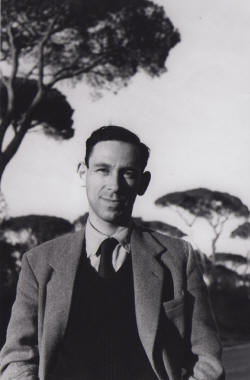

Queer Places:
Eton College, Windsor, Windsor and Maidenhead SL4 6DW
University of Cambridge, 4 Mill Ln, Cambridge CB2 1RZ
University of Oxford, Oxford, Oxfordshire OX1 3PA
 Francis James Herbert Haskell, FBA (7 April 1928 – 18 January 2000) was an English art historian, whose writings placed emphasis on the social history of art. He wrote one of the first and most influential[1] patronage studies, Patrons and Painters.
Francis James Herbert Haskell, FBA (7 April 1928 – 18 January 2000) was an English art historian, whose writings placed emphasis on the social history of art. He wrote one of the first and most influential[1] patronage studies, Patrons and Painters.
Haskell was born on 7 April 1928. He was the son of Arnold Haskell, an influential ballet critic and writer[2] and Vera Saitzoff,[3] daughter of a Russian industrialist.[4] His first language was French, the language shared by his parents, and he was fluent in English, French and Italian.[5] From ages 5 to 8, Francis attended the Lycée Français Charles de Gaulle in London, and then at Eton College.[2] In 1948, after serving in the Royal Army Educational Corps, Haskell matriculated into King's College, Cambridge.[5] He read history before switching to English, and among his tutors were Eric Hobsbawm and Dadie Rylands.[5] At Cambridge, he was a member of the semi-secretive Cambridge Apostles society, a debating club largely reserved for the brightest students.
Haskell began his career not in academia but as a junior library clerk in the House of Commons from 1953 to 1954. In 1954, however, he was elected a fellow of the King's College, Cambridge. He was additionally librarian of the Faculty of Fine Arts, University of Cambridge, from 1962 to 1967. In 1967, he was elected Professor of Art History at the University of Oxford, where he remained until his retirement in 1995; the position made him, ex officio a visitor—that is, a trustee—of the Ashmolean Museum. He was additionally a fellow of Trinity College, Oxford, from 1967 to 1995.[2] In November 1971, he was made a member of the British School at Rome for the next three years.[6] He retired from Oxford in 1995, and was made an honorary fellow of his college.[2] He was a trustee of the Wallace Collection from 1976 to 1997. In 1976 Haskell, who often served on advisory committees for museum loan exhibitions, joined the National Art Collections Fund committee and became one of its most vocal members, defending the purchase of Poussin's Rebecca and Eliezar for the Fitzwilliam Museum in Cambridge (the government refused to accept the painting because it had been in the collection of the disgraced Anthony Blunt). Haskell's research focused beyond art works to people that surrounded them, including their patrons and history of the academic study of art.[5] His interest in the circumstances in which paintings were displayed, which reflected the esteem in which they were held and influenced the way they were perceived runs as a leitmotiv through his published work, beginning with an article jointly written with Michael Levey in Arte Veneta, 1958, that was devoted to art exhibitions in eighteenth-century Venice.[7]
His wife, Larissa Salmina, had been a curator at the Hermitage Museum. They married in 1965[8] and lived in Walton Street, Oxford. They did not have any children.[2] Haskell died of liver cancer on 18 January 2000, aged 71.[9]
My published books: